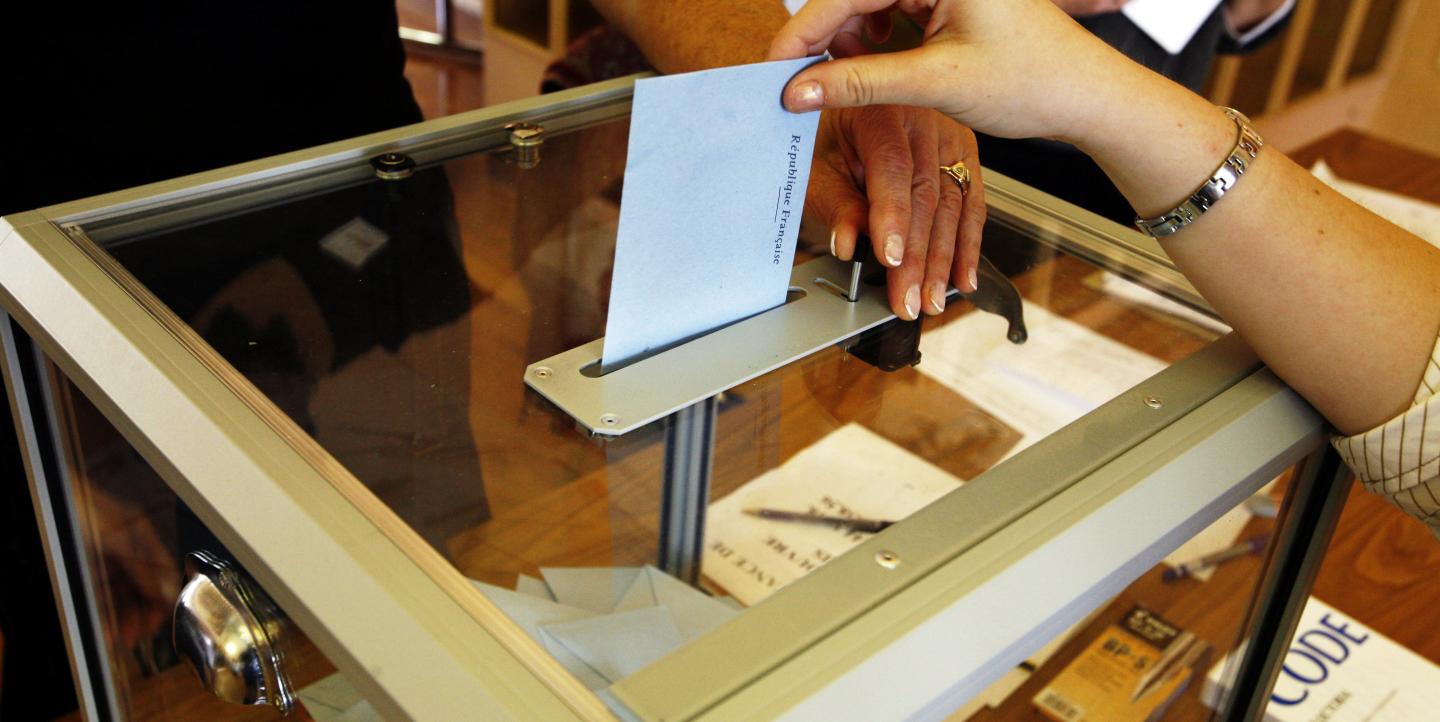After the results of May’s presidential elections forced a second round, Colombians will take to the polls Sunday, Jun. 17 to choose between the two candidates that made it to the runoff: Iván Duque, from the right wing Centro Democrático party, and Gustavo Petro, from the leftist Movimiento Colombia Humana.
In an election more polarized than the first, and at a time when unverified data and fake news are widespread, finding trustworthy information to make a decision can be a challenge for voters.
Aiming to provide this information, and to contribute to the electoral debate, Chicas Poderosas Colombia launched El Poder de Elegir (The Power to Choose), a digital fact-checking project. They are taking on one of the most widely used channels of communication for Colombians: WhatsApp.
The project started as an experiment aimed to discover “how to fact-check and verify WhatsApp messages in a collaborative, decentralized way, with more women leaders and a gender perspective,” says Lia Valero, a journalist and member of Chicas Poderosas, a community that promotes the leadership of women in digital media across Latin America, Portugal and the U.S.
Aiming to provide journalists and designers with tools to fact-check and cover elections, Chicas Poderosas organized a three-day workshop in Colombia with the support of OXFAM. The workshop brought together 40 women from different parts of the country.
“On the third day of work, an idea emerged to create a collaborative fact-checking initiative. A team was created [including journalists and designers],” says Valero. “The methodology was decided and we started crafting the process and workflow.”
El Poder de Elegir addresses the problem of voter manipulation through misinformation. By checking viral electoral information and disseminating their verifications, they try to dissuade Colombians from basing their decision on information that isn’t factual.
The project was also a response to the campaign of misinformation that tried to manipulate voters before the referendum on the peace agreements. Now, when the country is deciding its first president after the end of more than five decades of war, the stakes are high.
Facebook has received a lot of attention for its role in spreading misinformation and giving up data that was used to manipulate voters. However, WhatsApp — a platformed owned by Facebook — has been left alone. WhatsApp is used daily by 1 billion people, but it remains part of dark social, meaning the exchanges cannot be measured by web analytics programs and the content that circulates cannot be tracked, which creates a perfect environment for the spread of rumors and misinformation.
The team at El Poder de Elegir asks users to send them WhatsApp messages with memes, images and texts regarding the elections that they want verified. Afterwards, users are asked to share the verified information with the same group or person that sent them the information in the first place. In this way, users have a role in the construction of factual information and its dissemination. The team also uses social media, mainly Instagram, to spread their messages.
El Poder de Elegir partnered with other organizations, which include Colombia Check and Argentina’s Chequeado to set up their methodology and consult throughout the process, Meedan’s Spanish-language platform Check to organize and show the process of each investigation so that anyone can replicate it and Open Society for financial support.
“It’s been a fundamental part of the process: to learn from those who have experience and not reinvent the wheel,” says Valero, adding that it has allowed them to advance faster with the project.
Design took center stage in an attempt to make the verified content as viral as the original, and as a way to set themselves apart from other contents that spread rumors and fake news.
“Design and communication have been a fundamental part of the project, since one of our innovation proposals is centered on new ways of showing verified information,” says the project’s designer and member of Chicas Poderosas, Eliana Vaca.
Vaca and her team chose to present verifications through GIFs that include popular memes, making it easier and faster to read, and appealing to humor, wit and a simple design, to make it more likely for people to circulate them.
They are implementing the same logic as those who create the viral misinformation, in an attempt to address that same audience.
The team at El Poder de Elegir also chose to use a pastel palette. “We decided it should be feminine,” Vaca explains, “since those colors are rarely used in political topics.”
After less than a year of work, the team was able to set up a solid methodology and process that allows journalists and designers to work together remotely, which will be the key to scale up the project and replicate it in Venezuela, Mexico, Brazil, and possibly Peru for their own presidential elections, with the support of the local chapters of Chicas Poderosas. They are also sharing their experience with anyone who might be interested.
Information is power. Even fake information. This project aims to help people claim back their power to choose — one WhatsApp chain at a time.
Editors' note: Chicas Poderosas was launched by ICFJ Knight Fellow Mariana Santos during her Fellowship.

